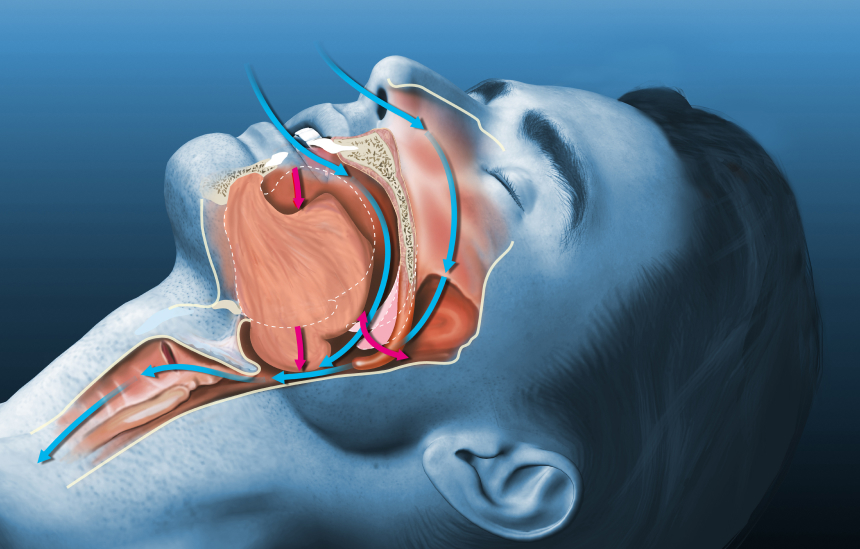What is Sleep Apnea?
Do you experience restless nights, waking up feeling utterly exhausted even after what seemed like a full night's rest? If so, you may be dealing with a common yet often misunderstood condition called sleep apnea. Sleep apnea is a condition that disrupts your breathing patterns while you sleep. Imagine your airway being partially or completely blocked, causing frequent interruptions in your breathing throughout the night. These interruptions, known as apneas, occur when your breathing pauses, robbing your body and brain of the essential oxygen they require for optimal functioning.

The most prevalent form of sleep apnea is called obstructive sleep apnea (OSA). It happens when the muscles in your throat relax and collapse, obstructing your airway. Contributing factors such as excess weight, alcohol consumption, smoking, or certain physical characteristics can make you more susceptible to this type of apnea. Another type, known as central sleep apnea (CSA), occurs when your brain fails to send the appropriate signals to your breathing muscles.

Signs Of Sleep Apnea
Recognizing the signs of sleep apnea is crucial in seeking necessary help. Look out for symptoms such as excessive daytime sleepiness, persistent and loud snoring, morning headaches, or sudden gasping for air during sleep. Left untreated, sleep apnea can lead to severe health issues including high blood pressure, heart disease, stroke, and diabetes. Moreover, it can significantly impact your mood, memory, and overall productivity.
Understanding the warning signs and potential consequences of sleep apnea is paramount to addressing it. If you suspect you may have sleep apnea, it is advisable to consult with a healthcare professional specializing in sleep medicine. They will conduct a comprehensive evaluation that includes a sleep study, to accurately diagnose the presence of sleep apnea.
By actively addressing sleep apnea, you not only regain restful nights of sleep but also safeguard your long-term health and well-being. Improved sleep quality translates into increased energy levels, enhanced cognitive function, and a reduced risk of related health complications.
Treatment Is Easy
Treating sleep apnea can not only change your life, but save your life.
Luckily, there are a number of treatment options to fit every budget and lifestyle. If you want to address the root cause of sleep apnea, your best bet is an oral appliance. A simple mouth guard-like device keeps your tongue from blocking your airways, reducing snoring and pressure on your heart.
Patients find them easy to use, easy to travel with, comfortable, and report instantaneous relief from sleep apnea symptoms. And because sleep health is important to whole body health, these oral appliances are covered by Medicare and most health plans.